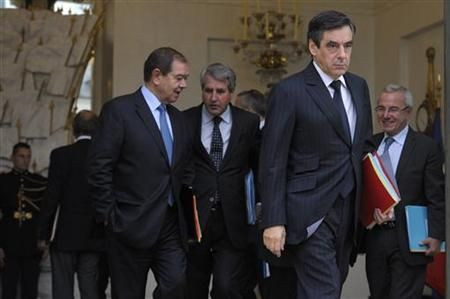France Remains Attractive for Foreign Investors, Govt Aims to Keep Favored Status

Despite the current global economic crisis -- which seems to have taken a relative stranglehold on Europe -- France has somehow managed to weather the storm. And, perhaps, thrive, if even just a bit.
The 2011 edition of the France Attractiveness Scoreboard, published by the Invest in France Agency, attributes this relative success to France's, well, attractiveness. Thanks to its particular appeal, businesses and investments have flooded in.
Internationally, the past year has been dominated by gradual emergence from the global economic crisis, particularly in Europe. Despite an intense focus on budget management and economic governance, Europe has rarely been so attractive, the FAS report wrote. From this standpoint, 2010 was a bounce-back year for France. Every week, an average of 15 foreign companies made new investments in France, resulting in 32,000 new jobs.
The report pits France against 12 countries, mostly European, with Japan and the United States tossed into the mix. In 2010, the United Nations Conference on Trade and Development, or UNCTAD, ranked France third after the United States and China/Hong Kong as the leading recipients of foreign direct investment.
In terms of national wealth (FDI stock/GDP), France has received twice as much foreign investment as Germany, Italy or the United States. And over the last 10 years, France's position has steadily improved. Inward FDI stock amounted to 42.3 percent of GDP in 2009, compared with 16.8 percent in 1999.
But how long can France stay above the water?
Former British Prime Minister Gordon Brown thinks not long, saying France risks becoming the next victim of the sovereign-debt crisis. France is in danger of being picked off by the markets in the coming weeks and months, Brown said at an event in Moscow Thursday.
The costs of insuring against default on French government debt rose to a Thursday on concern Europe's leaders are failing to contain the region's deficit crisis, Bloomberg reported. The European Union foreshadowed that the French economy's growth will start to peter next year -- despite President Nicolas Sarkozy's predictions -- reversing what had been an upward tick for France while other European countries spiraled.
France's unveiling Thursday of a series of austerity measures also speaks volumes. It says that the French are going to play it safe - and rightfully so. The plan to tighten up fiscally includes a 5 percent super-tax on big firms, a rise in VAT on restaurants and construction, and cuts on pensions, schools, health, and welfare.
We wish to protect the French against the grave problems facing other European countries. Bankruptcy is not an abstract word, said French Prime Minister Francois Fillon. In other words, France's austerity package is a blatant attempt to separate itself from the unfurling crisis in Italy.
This move comes amid a flurry of bleak data from Europe, confirming that most of the region is already on the cusp of recession. Growth has reached a virtual standstill, said European Union Commissioner Olli Rehn, The Telegraph reported. Eurozone retail sales fell 0.7 percent in September from the month before. German industrial output plunged 2.7 percent, the steepest drop since the depths of the crisis in January 2009. Factory orders fell 12 percent, the Telegraph wrote.
So what does France do next?
Brown urged Sarkozy, as current chairman of the Group of 20 leading economies, to draw up a plan to bolster economic and business growth.
The G-20 under Mr. Sarkozy should look at a global growth pact and allow the rest of the world to support the EU, Brown said. There has to be a global growth agreement between the major powers. China will not grow to employ an additional 40 million people if foreign markets don't grow.
© Copyright IBTimes 2024. All rights reserved.



















